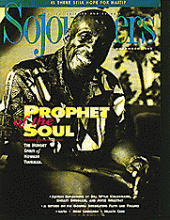Talk radio has become the medium of exchange of ideas in recent years. Talk-show hosts act as the ombudspersons of the common good, watchdogging such nagging social problems as the congressional pay hike, the House banking scandal, and the Zoë Baird nomination.
Now talk jocks have unearthed the new Evil Empire that threatens American liberty and prosperity. Is it a rising military power? A coming economic giant? A new spiritual force luring its devotees astray? No, none of these. It's our very own public education system.
In recent years such topics as busing, vouchers, and home schooling have been the focus of much editorial deliberation. If the current level of intensity of talk-show discussion is any indication, add "outcome-based education" to the sinister list. OBE is a teaching philosophy that assumes students must master material in order to progress. Students advance to the next level only after they demonstrate sufficient proficiency. Outcome-based education is oriented toward results rather than toward letting the students off with a bad grade and "time served" in class. OBE does not weed out slower learners, as has sometimes been the effect of traditional classroom education, but seeks to allow everyone to advance with the abilities necessary to flourish.
OBE's stated goal of having all students succeed makes it suspect with extreme right wingers: When reactive conservatives hear guarantees of result, visions of socialism dance through their heads.
Leading the crusade to put down this outcome-based insurrection is radio's own judge, jury, and executioner: Rush Limbaugh. Blending entertaining bravado with blistering attacks of an ideological kind on proponents of OBE, Rush shamelessly campaigns against moves to open up the educational system.
Read the Full Article

